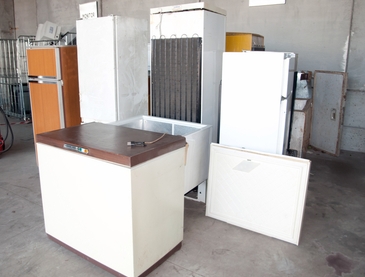
Do you understand what is the WEEE directive? Do you want more information about the law and what’s included?
Never fear, as we’ve decided to compile a complete overview to ensure that our readers understand WEEE and how it affects them. Thanks to regulations passed in January 2014, the former 2006 rules no longer apply. This has caused some confusion, but since we specialise in WEEE, who better to explain it?
What does WEEE stand for?
WEEE stands for Waste Electrical and Electronic Equipment recycling.
Why is WEEE important?
Annually, it is estimated that 2 million tonnes of items fitting the WEEE description are discarded. Everything from large household appliances to batteries are included and the regulations are designed to ensure that items of this nature are discarded of, reused and recycled in a way that is safe for humans, wildlife and the environment.
What’s covered in the regulations?
As we mentioned earlier, the directive covers many articles and an extensive list would be a very boring read. To prevent you from falling asleep, we’ll list a few of the main items that are covered under WEEE law:
- Large Household Appliances
- Washing Machines
- Tumble Dryers
- Fridges
- Small Household Appliances
- Vacuums
- Toasters
- Kettles
- Consumer Electronics
- Televisions
- Games Consoles
- IT and Telecommunications Equipment
- Desktop Computers
- Laptops
- Telephones
- Electronic Tools
- Drills
- Lawnmowers
- Angle Grinders
Although the list that we have provided is nowhere near extensive (for a full list, we recommend you take a look at the government’s guidance notes), you can see just how large of a scope the WEEE law has.
What Are The Requirements For Businesses In Regards To WEEE?
Since the regulations came about in January 2014, UK law has required businesses that produce or sell electrical and electronic equipment (EEE) to follow a few rules in order to help avoid masses of EEE from ending up in landfill. These rules apply to all UK distributors and producers of such products to:
- Minimise waste from their electrical and electronic equipment
- Promote the reuse of such items
- Ensure that products are disposed of or recycled in a safe and appropriate manner
- Design products with a focus on reducing materials used and with re-usability as a primary target
That’s Where We Come In
At Recycling Your IT we specialise in ensuring that our clients are on the right side of the government regulations, avoiding the chance of legal or civil action arising.
With so many items in the IT industry being a part of the directive, it’s difficult to keep track of them all. Knowing what to do with all of these items is another massive challenge. Fortunately for our customers, they don’t need to, since we do all of the hard work for them! When you use our service, you know for a fact that what can be reused, will be reused. What can be recycled, will be recycled. Unfortunately, not every item will be salvageable, but you can rest assured that whatever needs to be disposed of will be with the utmost care and responsibility.
If you’re not sure whether you should be concerned about the WEEE regulations or not, or even if you’d just like more information, get in touch today and see how we can help you stay on the right side of the law!
